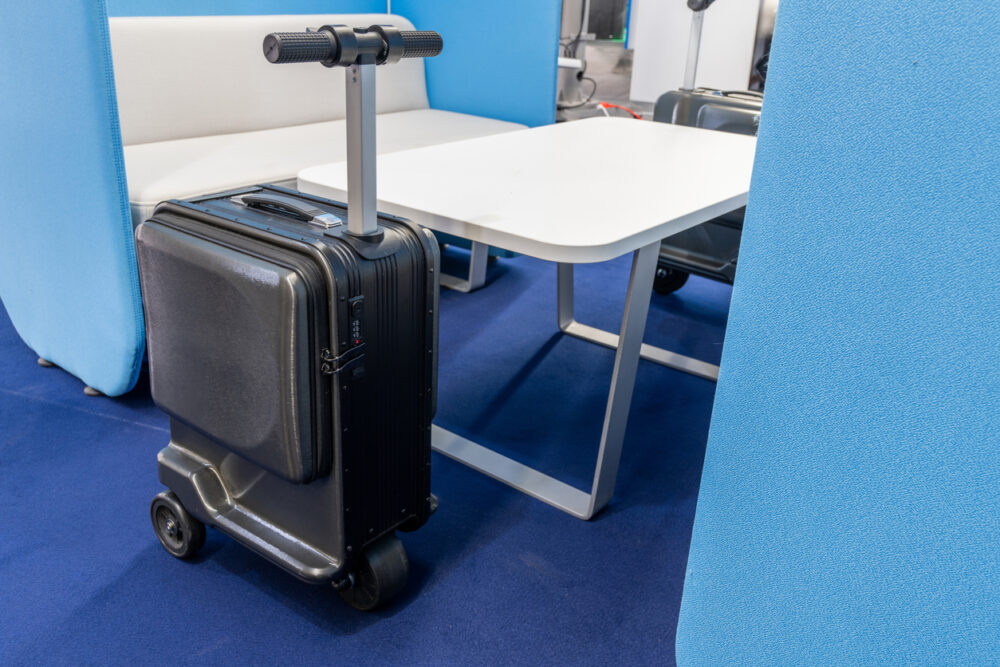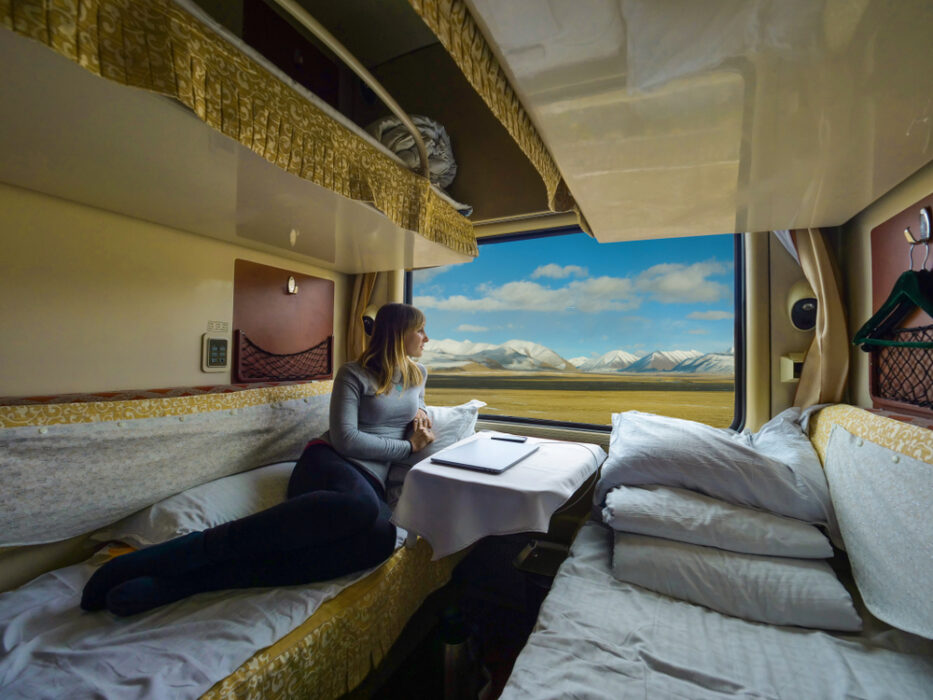The way we explore the world is evolving fast—don’t get left behind.

The way people travel is changing faster than ever, and 2025 is set to bring a whole new era of exploration. What once felt like a far-off future is now reality, with innovations, shifting mindsets, and unexpected destinations reshaping the travel experience. The way trips are planned, the kinds of experiences travelers seek, and even the expectations for what makes a great getaway are evolving in ways no one could have predicted a decade ago.
Sticking to the same old travel habits might mean missing out on some of the most exciting opportunities to explore the world. Keeping up with the latest shifts isn’t just about knowing where to go—it’s about understanding how travel itself is transforming. These trends will redefine the way people move, connect, and experience the world in 2025 and beyond.
1. AI travel planners will build your itinerary better than you ever could.

Booking flights, choosing hotels, and planning excursions used to take hours of research, but AI is about to change everything. Smart travel assistants are making trip planning effortless, crafting personalized itineraries in seconds based on your preferences, budget, and past travel habits, as reported by Megan Cerullo for CBS News. No more sifting through endless reviews or guessing which hotel has the best views—AI will do the heavy lifting. Some platforms are even predicting what kind of trip you’ll love before you realize it yourself.
The more you use these tools, the smarter they get, learning your favorite travel styles and fine-tuning recommendations. Travel agencies? Guidebooks? Even Google searches? They might not be necessary much longer. The days of overcomplicating trip planning are fading fast, and 2025 is the year that AI takes over the travel game.
2. Hidden-gem destinations will replace overhyped tourist hotspots.

Travelers are officially over the overcrowded, overpriced, and over-photographed tourist traps. Instead of fighting for a selfie at the usual landmarks, more people are looking for places no one else is talking about—until now. Lesser-known towns, under-the-radar islands, and destinations that haven’t been Instagrammed to death are seeing a surge in interest, according to Zinnat ara Begum in an article for History. It’s not just about avoiding crowds; it’s about discovering something fresh, authentic, and immersive. Countries that once sat in the shadow of bigger tourism giants are finally getting their moment.
More travelers are swapping Paris for Porto, skipping Santorini for Naxos, and choosing Albania over Italy’s Amalfi Coast. As the desire for unique experiences grows, expect hidden gems to shine brighter than ever in 2025. If you want to stay ahead of the curve, start looking where no one else is.
3. Sustainable travel will no longer be an option—it will be the standard.

Sustainability isn’t just a buzzword anymore; it’s becoming the baseline expectation for travel in 2025. More travelers are demanding eco-friendly accommodations, low-impact transportation, and ethical tourism practices, says Macala Rose writing for the the Institute for Global Environmental Strategies. Hotels are racing to go carbon-neutral, airlines are experimenting with sustainable fuels, and tour companies are cutting waste at every turn. It’s not just about helping the planet—it’s about making travel better.
People are realizing that slow, intentional travel is more rewarding than fast-paced, check-every-box trips. Eco-certified stays, local-first dining, and carbon-offset programs are no longer niche choices—they’re what conscious travelers expect. If you’re not thinking about sustainability when booking your next trip, you might be in the minority. The travel industry is shifting, and in 2025, exploring the world responsibly will be the only way forward.
4. Workations will become the new way to see the world.

Remote work changed everything, and in 2025, more travelers will ditch short vacations in favor of extended “workations.” Instead of cramming a trip into a week, people are setting up temporary home bases in dreamy locations, blending work and adventure into one seamless lifestyle, says Sam Kemmis for Nerd Wallet. Fast Wi-Fi, coworking spaces, and digital nomad visas are making it easier than ever to swap your office for a beachfront café or a mountain cabin.
More companies are embracing flexible work policies, meaning a long-term stay in Bali, Lisbon, or Mexico City isn’t just for influencers anymore. Why take a two-week vacation when you can turn your whole life into an adventure? The future of travel isn’t just about where you go—it’s about how long you stay.
5. Ultra-personalized travel experiences will be the new luxury.

Cookie-cutter vacations are out. Travelers want tailor-made experiences that match their interests, personalities, and even mood. Hotels are offering hyper-personalized stays, learning your favorite drinks, room preferences, and even what kind of pillow you like. Travel companies are curating itineraries so specific, it feels like they’ve read your mind.
AI-driven personalization is playing a huge role, analyzing past trips, social media activity, and even biometric data to suggest ideal destinations. Want a trip that perfectly matches your energy levels and food cravings? There will be an app for that. The one-size-fits-all vacation is dying, and in 2025, the most memorable trips will be the ones designed just for you.
6. Space tourism will get closer to being a reality—for those who can afford it.

It might sound like science fiction, but space tourism is inching closer to reality. Companies like SpaceX, Blue Origin, and Virgin Galactic are refining their commercial spaceflight programs, making the idea of leaving Earth less of a fantasy. While a seat on one of these flights will still cost a small fortune, 2025 will bring new advancements, making space travel slightly more accessible. More companies are getting in on the action, working toward space hotels and lunar tourism within the next decade.
For now, ultra-wealthy adventurers will be the first to experience it, but with every breakthrough, the dream of space travel for the everyday traveler gets a little closer. If you’re not ready for zero gravity just yet, Earth still has plenty to explore.
7. Smart luggage and travel tech will make packing easier than ever.

The future of travel gear is here, and it’s smarter than ever. Suitcases with built-in GPS tracking, self-weighing features, and even phone-charging capabilities are becoming mainstream. Some brands are even rolling out luggage that follows you through the airport hands-free.
Compression technology is making it possible to fit more into smaller bags, while AI-powered packing apps suggest exactly what to bring based on your itinerary and the weather. Lost baggage will be less of a nightmare thanks to real-time tracking features, and security lines will be faster with biometric scanning. Packing and airport stress? A thing of the past. 2025 is the year travel tech goes from cool to absolutely essential.
8. Sleeper trains will make a massive comeback.

Airports are exhausting, and long-haul flights aren’t getting any more comfortable. Enter the rise of sleeper trains—an old-school mode of travel making a major comeback. Europe, Asia, and even the U.S. are investing in overnight train routes that offer a stress-free, scenic alternative to flying. Imagine waking up in a new city without dealing with airport chaos.
Modern sleeper trains are ditching outdated cabins for sleek, hotel-like compartments with private bathrooms, Wi-Fi, and luxury bedding. The bonus? Trains are far more eco-friendly than planes, making them an attractive choice for conscious travelers. As new routes launch across the world, expect more people to swap red-eye flights for rail travel in 2025.
9. Immersive cultural experiences will replace traditional sightseeing.

The days of checking off famous landmarks and calling it a trip are fading fast. Travelers want hands-on, deeply personal experiences that make them feel part of the culture. Cooking with locals, learning traditional crafts, and staying with host families are becoming more popular than snapping photos at famous sites. Instead of museum tours, people are signing up for storytelling walks led by locals.
Instead of packaged bus tours, travelers are joining small-group experiences that take them beyond the usual spots. More companies are prioritizing immersive travel, offering unique ways to connect with a destination in an authentic way. In 2025, the best trips won’t just be about seeing a place—they’ll be about living it.
10. AI-powered translation will break down language barriers like never before.

Speaking the local language won’t be a requirement for immersive travel much longer. AI-powered translation apps and smart earbuds are making instant language translation smoother and more accurate. Travelers will be able to have real-time conversations with locals in dozens of languages without awkward phrasebook flipping. Some devices are even developing accents and slang recognition, making interactions feel more natural.
Ordering food, asking for directions, or chatting with locals will become easier than ever, making the world feel smaller and more connected. The language barrier isn’t disappearing entirely, but in 2025, it will be thinner than ever.
